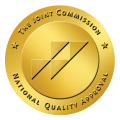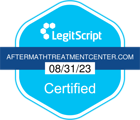
Methamphetamine addiction shouldn’t be taken lightly. In 2020, the United States saw 2.5 million people aged 12 or older having used meth. However, for each person struggling with this addiction, it’s not hopeless. Although recovery can seem like an insurmountable challenge, professional treatment can make each climb easier.
Typically illicit, meth is a synthetic stimulant drug. To demonstrate this: In 2021, about 1.6 million American 12 years and older were reported as having a meth addiction disorder.
Unfortunately, to make the drug easier to take in, it comes in multiple forms. This includes white crystals or powder that can be smoked, snorted, injected, or taken via the mouth.
Yes, meth is widely known to be one of the most addictive substances available. Notably, a 66% increase in consistent meth usage (using at least 100 days in a year) gives a glimpse at the drug’s addictiveness in the United States.
Meth overflows the brain with dopamine. This intense rush aggravates the craving for more of the drug. Dopamine is a neurotransmitter that regulates pleasure and reward.
However, the long-term effects are not rewarding. Because meth damages the dopamine receptors in the brain and surges abnormal dopamine levels, pleasure from regular activities or events becomes ineffective.
As noted, meth has a psychological impact. But physical damage is also to be expected. Knowing the differences and signs can help you seek intervention sooner.
Harmful short-term and long-term consequences of meth addiction include:
Plus, if you’re injecting meth, the risk for infectious diseases like HIV and hepatitis C is higher.
Aside from the addictive nature of the drug, quitting meth is harder thanks to the intense withdrawal symptoms. These symptoms can differ depending on how severe the addiction is and other individual circumstances:
To make matters worse, these symptoms can last for weeks or even months after the last dose.

Attempting to quit meth alone can be dangerous due to the potential for severe depression, psychosis, and suicidal thoughts during withdrawal. A proper medical detox under professional supervision is essential to ensure safety. Even more, a safe detox boosts the chances of a smooth recovery.
Because you may have different needs and preferences compared to the next person, our levels of care are adjustable.
Day treatment, formerly known as the Partial Hospitalization Program (PHP), is perfect for those who are early in their addiction recovery but cannot head into full-on inpatient/residential care. Day treatment can help you benefit from high levels of medical supervision with a bit more flexibility. With this, treatment is typically Monday to Friday for a total of 25 hours a week.
A big goal of this program is to set you up with all the necessary tools to sustain long-lasting sobriety. To aid with this, we strongly advise that you have a strong support system at home while undergoing treatment.
At Aftermath, our IOP prioritizes treatment with a proven track record. However, you aren’t bound by a round-the-clock residency at a facility. With IOP, you’ll attend treatment several days per week for a few hours at a time. This allows you to live at home and still receive sufficient care with lower fees too.
The outpatient program is ideal for those who have completed a higher level of care and need continued support while living at home. Plus, OPs can be catered to specific addictions, so your care is particular to your needs. Work, school, or family obligations don’t have to come second and neither does your health. Our OP requires no overnight stays at our facility in Wakefield.

Treatment with us incorporates multiple therapy approaches to address the psychological, emotional, and behavioral elements of meth addiction. This ranges from standard talk therapy to art therapy to mindfulness.
Group therapy allows you to connect with others with similar battles. Together, you can gain the tools you need for a fruitful recovery, such as:
Group therapy allows you to connect with others with similar battles. Together, you can gain the tools you need for a fruitful recovery, such as:
A stable space to learn healthy ways to express anger and manage your emotions is important.
Hard life events can sometimes lead to addiction. Therapy can help you unpack these and develop positive ways to manage.
You can pick up new skills to handle anxiety and cravings suitably. Plus, better interpersonal relationships through improved communication can boost your mental health.
You can identify what could trigger your cravings and uncover how to cope. Recognizing your warning signs and using your new strategies can help you stay on course.
Working one-on-one with a therapist can help you feel heard and cared for. At Aftermath, our experienced team uses these techniques if they deem it necessary:
Group therapy allows you to connect with others with similar battles. Together, you can gain the tools you need for a fruitful recovery, such as:
Manage strong emotions and tolerate distress in a healthy way.
Use eye movements to help you process and heal from trauma that may spur on your addiction.
Explore your desires to get sober through a collaborative process that encourages you to make positive life changes.
Identify and challenge unhealthy beliefs surrounding addiction. Changing your thinking can improve your emotions and behaviors.
The caring, judgment-free space at our facility exists to encourage your recovery. At Aftermath, our team strives to help you achieve sustainable sobriety, not just a quick clean run. Although every step to the summit of recovery may seem unbearable, we’ve got you. Our supportive staff and tailored treatment plans can help you through it all.
If you’re ready to make the journey to change, reach out to us today at 855-795-1226. Healing starts one step at a time.

Recovery is continuous. But most people require at least 3-6 months of intensive treatment to find solid footing for sobriety. Continued support or counseling is useful to maintain recovery.
At Aftermath, we work with most major insurance providers to ensure as much coverage as possible. Payment plans are also available. This is because different programs and amenities can influence the price.
Addiction is considered a chronic brain disease. Therefore, it can’t be entirely “cured.” However, continuous treatment, lifestyle adjustments, and relapse prevention methods can manage it. For many, long-term recovery is their reality.




607 North Avenue, Suite 11E, Wakefield, Massachusetts, 01880
© 2022 Aftermath Addiction Treatment Center. All Rights Reserved.